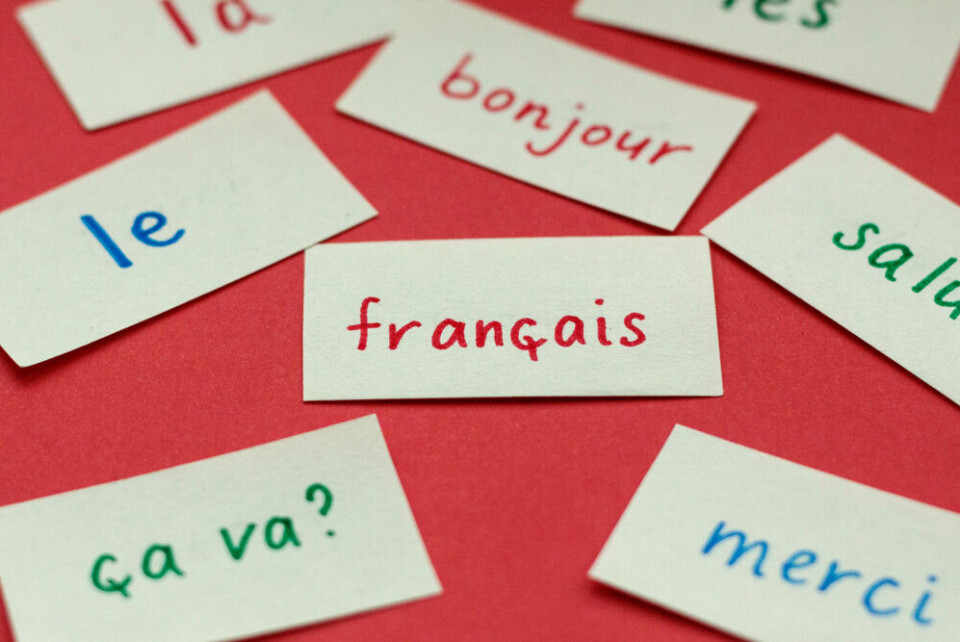-
Stendhal syndrome: has art ever driven you to distraction?
Discover the condition where art induces intense emotions and even physical reactions
-
When and why do we say c’est Noël avant l'heure?
A joyous phrase to use in the countdown to Christmas
-
When and why do we say French expression mettre la puce à l'oreille?
This phrase will plant an idea in your head
Learning French: Six ‘slurred’ words you may find hard to recognise
French people run some everyday words together, making it hard for non-natives to identify phrases that in reality they do know. We give examples

Have you ever had trouble understanding French people in real life, when you do not have access to subtitles or a dictionary to check on the spellings? We know the French language can be difficult because of its verb forms, various irregularities and its slang.
Slurred words are another aspect of French language-learning that books often cannot explain.
The Connexion looked at words or phrases that are often difficult to understand because the pronunciation is slightly different than on paper.
Try to say the phrases quickly and you will soon be understanding French people better.
Chépa
The sound ‘chépa’ or 'j’chépa’ is an accelerated form of the sentence ‘je ne sais pas’ (I do not know.) Like some of the other instances explained below, the sound ‘je ne + verb starting with an s’ sounds like ‘ch’ when said rapidly. The ‘ne’ part of the negative construction is almost always elided in speech.
The sound ‘ch’ keeps the first singular form ‘je’, which indicates the person asked does not know, when having only say ‘sais pas’ could mean something - rather than someone - does not know.
Chéhap exists and also means chépa but with a twist on ‘pas’, which is flipped backwards in an example of verlan, a form of French language where spellings are reversed.
Chui
‘Chui’ falls into the same category as ‘chépa’ since it is the shorter form of ‘je suis’ (I am.) The ‘j + s’ sound creates a ‘ch’ sound when pronounced quickly, like in the case of chépa.
Popular French rapper Vald combined both ‘chui’ and ‘chépa’ in a song called ‘chépakichui’, which would be correctly written ‘je ne sais pas qui je suis’ (I do not know who I am.)
Qui t’es? or t'es qui?
‘Qui t’es’ or ‘t’es qui’, sometimes written ‘t ki’ in text messages, means ‘tu es qui?’ or ‘qui es-tu?’ (who are you?). The -u sound gets chewed up mostly because the meaning is not lost if it is not there.
S’cuse
‘S’cuse’ is a shorter form for ‘excuse’ and is used with every French subject pronoun
(‘s’cuse-moi’, ‘s’cuse-toi’, ‘s’cuse-le’ etc. (Excuse-me, excuse yourself etc.)) although the most common form is ‘s’cuse-moi.’
‘S’cuse’ is often used within the phrase ‘s’cuse-moi’ and employed sarcastically to mean ‘Oh sorry that I do not know what you are talking about.’
V’là
‘V’là’ is the accelerated pronunciation of ‘voilà’ (Here it is.)
‘22, v’la les flics’ is a popular expression employed in Astérix et Obélix’ bandes-dessinées (comic strips) or in popular French movies from the ‘60s.
The expression was shouted to alert when police forces are coming but grew outdated over the years. Several theories have been explored to understand the meaning behind the number 22.
The missing -e sound
As a general rule, the e-sound is often chewed up by French people. ‘Je + verb’ is transformed into ‘j’ + verb’ most of the time like in ‘j’mange’, ‘j’bois’, ‘j’rentre à la maison’ (I eat, I drink, I’m coming home.)
The e-sound is not only chewed when associated with a verb, however. It could also very well happen with phrases like ‘s’maine dernière’ (last week.)
























